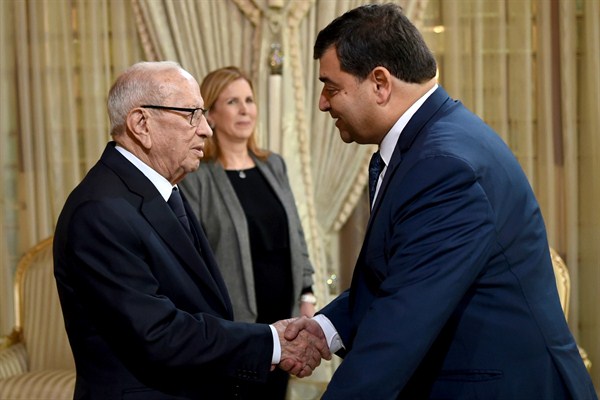Tunisia’s prime minister, Youssef Chahed, announced several changes to his Cabinet last week in a bid to shore up support for his government amid a parallel political and economic crisis. The changes were approved in a parliamentary vote that the ruling Nidaa Tounes party boycotted, laying bare the deepening divisions within the Tunisian government. In an email interview with WPR, Sharan Grewal, a post-doctoral research fellow at the Brookings Institution’s Center for Middle East Policy, discusses the latest developments in Tunis and what to expect from the newly approved Cabinet.
World Politics Review: What prompted Prime Minister Chahed to reshuffle his Cabinet last week?
Sharan Grewal: The Cabinet reshuffle was the latest installment in a long-running and largely self-inflicted political crisis. President Beji Caid Essebsi’s son, Hafedh, has been jockeying for control of Nidaa Tounes ever since his father was elected president in 2014. The rise of Hafedh, who has served as Nidaa Tounes’ executive director since the beginning of 2016, has paralyzed and fragmented the party. Many lawmakers opposed to him have left Nidaa Tounes, costing it its plurality of seats in parliament.

